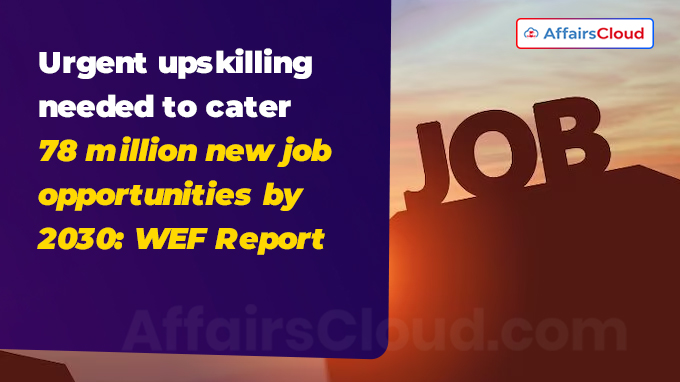 On January 7, 2025, the World Economic Forum (WEF) published its 5th edition of “Future of Jobs Report 2025 – Insights Report January 2025,” revealing that job disruption will equate to 22% of jobs by 2030 globally. This transformation is driven by technological advancements, demographic changes, economic pressures, and geopolitical tensions.
On January 7, 2025, the World Economic Forum (WEF) published its 5th edition of “Future of Jobs Report 2025 – Insights Report January 2025,” revealing that job disruption will equate to 22% of jobs by 2030 globally. This transformation is driven by technological advancements, demographic changes, economic pressures, and geopolitical tensions.
- The report forecasts the creation of 170 million new jobs and the displacement of 92 million, leading to a net increase of 78 million jobs.
- This analysis is based on the perspectives of over 1,000 global employers, representing more than 14 million workers from 55 economies.
- The report highlights key macrotrends shaping jobs and skills and discusses the workforce transformation strategies that companies will adopt from 2025 to 2030.
Skill Demand and the Need for Reskilling:
By 2030, around 40% of existing skills are expected to become outdated. Employers recognize that skill gaps are a major barrier to business transformation, with 63% of employers identifying this issue.
- According to the report, if the global workforce were composed of 100 people, 59 would need training by 2030.
- However, 11 of these workers are unlikely to receive the necessary training, putting them at risk of redundancy.
- To meet the demand for emerging roles, 85% of employers plan to prioritize workforce upskilling, with 70% seeking talent with new skills.
Highlights of the Report:
i.Broadening Digital Access: By 2030, 60% of employers expect expanding digital access to transform their businesses.
- This trend, coupled with advancements in artificial intelligence (AI), information processing, and robotics, will drive the creation of new roles and change existing job functions.
- AI and big data is expected to be the leading catalyst for these shifts.
ii.Impact of Advancing Technologies: AI and robotics are among the top technologies anticipated to be transformative.
- 86% of employers foresee AI and information processing to have a profound impact, followed by 58% anticipating the influence of robotics and automation.
- Additionally, 41% of employers expect advancements in energy generation, storage, and distribution to drive transformations.
iii.Economic Shifts: The rising cost of living is the 2nd-most transformative trend, with 50% of employers expecting it to reshape businesses by 2030.
- The global inflation is expected to decrease, the general economic slowdown will continue to affect 42% of businesses.
- These economic factors are predicted to displace 1.6 million jobs globally, while also driving demand for roles requiring creative thinking, resilience, and agility.
- Employers are expected to face job displacement globally, with an estimated 92 million jobs being lost by 2030, despite an expected 7% net growth in total employment, creating 78 million new jobs.
iv.Climate Change Mitigation: Climate-related trends are the 3rd-most transformative trends that are expected to drive demand for roles in renewable energy, environmental engineering, and electric vehicles.
- These roles are expected to grow alongside climate change adaptation, with 47% of employers expecting it to transform their businesses in the next 5 years.
Fastest Growing and Declining Roles:
i.Fastest Growing Jobs:
- Frontline job roles include Farmworkers, Delivery Drivers, Construction Workers, Salespersons, and Food Processing Workers.
- Technology-related roles such as Big Data Specialists, FinTech Engineers, AI & Machine Learning Specialists, and Software Developers.
- Green transition jobs like Autonomous & Electric Vehicle Specialists,Environmental Engineers and Renewable Energy Engineers.
- Care economy jobs, such as Nursing Professionals and Social Work roles, will grow as populations age.
ii.Fastest Declining Jobs:
- Clerical and secretarial roles, including Cashiers and Ticket Clerks, Administrative Assistants and Executive Secretaries are expected to see the largest decline in absolute numbers.
- Similarly, businesses expect the fastest-declining roles to include Postal Service Clerks, Bank Tellers and Data Entry Clerks.
About World Economic Forum (WEF):
President and Chief Executive Officer (CEO)– Børge Brende
Headquarters- Cologny, Geneva, Switzerland
Established – 1971




